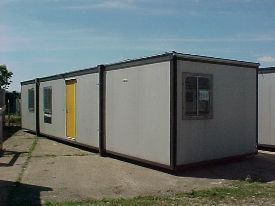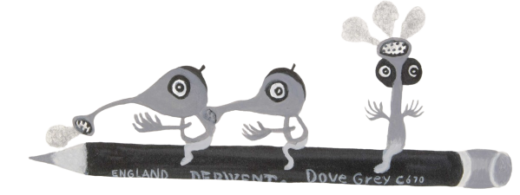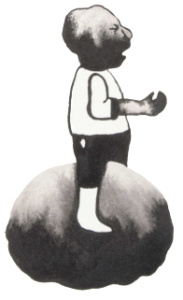A short discussion of the judgment of the Court of The Hague dated 9 January 2008 in the Portakabin / Primakabin case.
Introduction
To what extent is a seller of another party’s trademark products allowed to use this trademark to advertise? In principle, in the analog world the use of a trademark to advertise for trademark products is allowed – think for instance of dealers of second hand cars who lure their customers with the notice ‘BMW specialist’. Advertising in a digital environment, however, appears to be somewhat more complicated. With regard to this issue, The Court of The Hague was faced with the question whether the use of another party’s trademark in Ad Words constitutes trademark infringement. Ad Words are sponsored search terms which, if you enter them on the Google website, provide an ad or link to a website in addition to the ordinary search results.

Two companies, Primakabin and Portakabin, both engaging in the trade of cabins for temporary accommodation, had a conflict regarding these Ad Words. Primakabin had registered the words ‘portakabin’, ‘portacabin’, ‘portokabin’ and ‘portocabin’ as Ad Words. When entering one of these search terms in Google, a Primakabin ad appeared above or next to the search results with a hyperlink to the homepage of its website. Via this website Primakabin shows its product offer, including products by Portakabin . Portakabin, rightholder of the word mark ‘Portakabin’, is of the view that the registration and the use of its trademark in the Ad words constitutes a trademark infringement.
Trademark Infringement?
Already in 2006 preliminary relief proceedings were conducted regarding the dispute between Portakabin and Primakabin, in which proceedings the Court of Appeal of Amsterdam (Court of Appeal Amsterdam 14 December 2006, IER 2007, 27) ruled that the registration and the use of the same Ad Words by Primakabin could not be regarded as a use to distinguish goods within the meaning of Article 2.20 paragraph 1 sub a through c of the Benelux Treaty on Intellectual Property. The Court of Appeal was also of the view that there was no unlawful behavior and commented that the Court of Appeal only considered the use of the Ad Words justified in so far as clicking on the link produced a direct link to the Primakabin page on which the Portakabin products are offered. Therefore, Primakabin was not allowed to first direct the internet users to its homepage.
In the proceedings on the merits instituted by Portakabin, the Court of The Hague ruled differently. The use of the trademark ‘Portakabin’ in an Ad Word can actually be regarded as a use to distinguish goods (Article 2.20 paragraph 1 sub a). The same is true for the terms ‘portacabin’, ‘portokabin’ and ‘portocabin’, because the differences with the word mark ‘Portakabin’ are so insignificant that they may go unnoticed by an average consumer; all this as was decided by the European Court of Justice (“ECJ”) in the Arthur & Félicie judgment (ECJ 20 March 2003, case no. C 291/100, NJ 2004, 208). What is more, the Court established that the other terms are precisely used as Ad Words because internet users sometimes make a mistake when entering a search term. The resembling words are used as Ad Words in order to still direct consumers who make a typing error to the correct ad. According to the Court, this use of The Portakabin trademark by Primakabin nevertheless does not constitute a trademark infringement. When Portakabin puts its products on the market its trademark right with regard to these products will be ‘exhausted’, which means in the present case that Primakabin is free to use the trademark ‘Portakabin’ when advertising for the second hand Portakabin products it is selling. This rule nevertheless only applies if the ad actually relates to Portakabin products and if the manner of advertising does not constitute a legitimate reason for Portakabin to oppose this (ECJ 23 February 1999, case no. C-63/97, NJ 2001, 134 BMW/Deenik). In the view of the Court, Primakabin’s actions do meet these requirements and therefore do not constitute trademark infringement, neither with regard to the other search terms.
To conclude, it is striking that the Court does not follow the judgment of the Court of Appeal in preliminary relief proceedings regarding the linking: it considers that it is not unlawful that internet users first arrive at the homepage of Primakabin, instead of the underlying site where (amongst other things) the trademark products of Portakabin are offered. This is remarkable, because the above-mentioned European case law requires that the ad must specifically relate to the trademark products, and that the impression may not be created that there is a commercial relation with the rightholder. In the event of a mere reference to a homepage, which usually mostly contains information about the company itself, one may wonder to what extent this requirement is met.
Conclusion
The judgment of the Court of The Hague in the Portakabin / Primakabin case does not change the rule that trademark use by means of advertisements for third-party trademark products is, in principle, allowed, as was established by the ECJ in the above-mentioned BMW/Deenik judgment. The starting point is that sellers of such products must be able to make clear to their customers that they sell these products and where these products can be found, and this also applies to sales over the Internet. It is nevertheless remarkable that the Court also allows the use of signs that are similar to the trademark as Ad Words.
To conclude, one could still argue about the question whether or not Primakabin should have created a deep link instead of directing internet users to its homepage.

